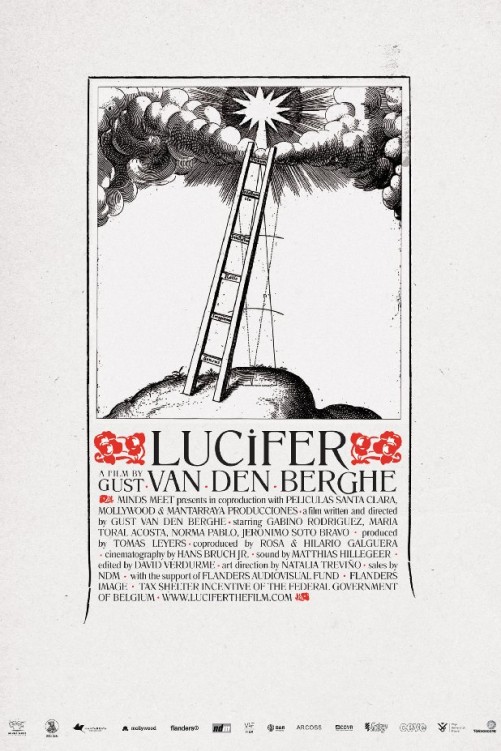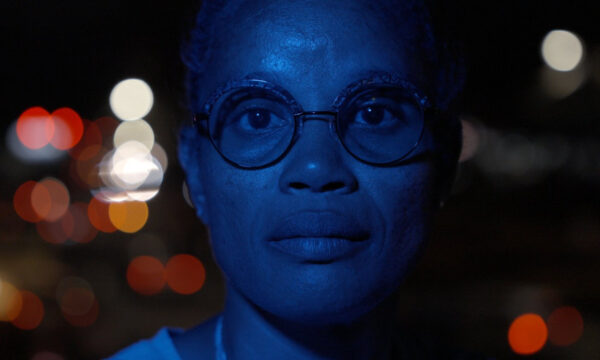Lucifer

Spiritual (not religious) film is few and far between in contemporary cinema. The subjects are too ethereal and the result takes nearly the entire running time to produce. Thus, the idea of Gust Van den Berghe’s fish-eye lens filmed Lucifer, shot in rural Mexico, is foreign in more ways than simply the language.
Bells ring and radio announcements inform village residents that a ladder has descended from the sky. Along with it came, what many believe is, an angel. Solitary and near-silent, this stranger befriends Lupita and Maria while exploring the countryside. Upon returning to their home, the man “heals” the legs of the bedridden Emanuel. Is this an omen of future miracles? The devout believers of the village, who have unsurprisingly increased in size since the first miracle, surely hope so. As this stranger becomes more of a familiar face, the relationships with Lupita and Maria grow deeper. These burgeoning connections, however, are not always the most saintly.
The small verdant world in Lucifer harks back to a different epoch. Not only the fish-eye lens, which gives a 70s sphere of observation, but also the tamed progress and presentation of a world isolated from contemporary convenience. Rather than find divinity in technology, the residents still look to signs from the heavens. The tempered dialogue is rife with subtext that begs for excavation. Yet the film is full of powerful images embroiled with vibrant mestizo colors, what appears on-screen is entertaining enough.
Lucifer not only presents the atmosphere of an older era, but also a forgotten form of cinema. Fans of Pasolini’s Theorema, Glauber Rocha, and even Bunuel, will find obvious allusions. Like these predecessors, director Van den Berghe seeks to edify the cultural prevalence of religion while exposing the reality beneath the faith. Succinctly, faith is a positive moral force, which is probably fictional, because humans will forever act on instinct. However, the thesis is resoundingly subtle and may not resonate with contemporary viewers as well as it did with 70s audiences.
Lucifer is an archaically beautiful film about spirituality and culture in rural Mexico. The story leaves viewers with a large landscape for interpretation, yet one that might be too vast.
Daniel Engelke
Lucifer does not have a UK release date yet.
For further information about the 59th London Film Festival visit here, and for more of our coverage visit here.
Watch the trailer for Lucifer here:
https://www.youtube.com/watch?v=Ap2-WHF-OXQ



























Facebook
Twitter
Instagram
YouTube
RSS